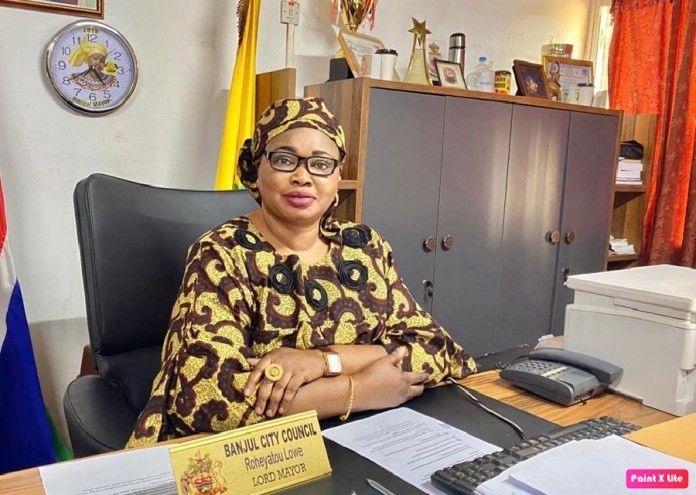By Makutu Manneh
Rohey Malick Lowe, the Mayor of Banjul has told the Local Government Commission of Inquiry on Wednesday that 90 percent of what her council was doing when they took office was wrong, attributing this to the absence of a proper handing over process and the council’s reliance on the practices of their predecessors instead of the law.
“When we were coming into office, we did not even have a page of a handing over. Most of us were new. If you check, 90 percent of what we were doing was wrong. The way we were doing things is that this is how our predecessors were doing it, more than how it was stated in the law,” Mayor Lowe said.
Testifying before the Commission on her reappearance, Mayor Lowe lamented that as mayor, she had no real authority over council expenditures, despite what the law provides. She told Lead Counsel Patrick Gomez that the system at Banjul City Council is “polluted” and riddled with frustrations.
“You will write to the Ministry of Local Government to complain about something and they will tell you never to write to them again, that it is only the CEO who has the power to write to them. So there are a lot of frustrations at the council,” she said.
Counsel Gomez reminded Mayor Lowe that the Local Government Act gives spending authority to the CEO, mayor or chairperson, and the general council collectively—not solely to the CEO. But Mayor Lowe insisted that although she understood what the law says, it is not reflected in practice.
“Lead Counsel, you are telling me what the law says, and I know the councils should work in accordance with the law, but this is not happening. If I say the mayor does not have powers, believe me,” she said.
She said she could not confirm if the CEO had absolute power over expenditure, but noted that he operates as the spending authority. She added that BCC has no spending threshold set for the CEO and despite several memos she wrote on the matter, there was no action. The Commission asked her to produce copies of those memos.
Mayor Lowe recalled that at some point the general council discussed a proposal that the CEO should not spend more than D500,000 without approval from the mayor and general council, but she could not confirm if such a resolution was ever passed.
Responding to a question on her role as mayor, Lowe explained that she plays a supervisory role, dealing with services, staff matters, and issues brought to her by the CEO—many of which, she said, she only hears about verbally and sometimes not at all.
“What is not brought to me by the CEO, I will not be aware of it unless I hear rumours outside,” she admitted.
Mayor Lowe said she and the CEO engage daily but most of their interactions are not documented in writing. She revealed that she is not part of the Senior Management Committee (SMC) meetings and that this was on the advice of the CEO.
“Yes, I asked many times to be part of the meeting, but the CEO advised me to allow them to do their meetings and that he would report to me what was discussed. He told me it is he who has to report to me,” she stated.
Asked whether the CEO’s advice was backed by law, Mayor Lowe said she was not shown any legal provision, nor had she seen in the Local Government Act that excludes the mayor from SMC meetings. She admitted that the CEO does not always bring her the minutes of those meetings and she does not know why.
Counsel Gomez pointed out that such an arrangement would be ineffective and improper if the CEO does not report fully on what transpired in the meetings. Mayor Lowe agreed that verbal updates are not sufficient and said one major lesson she has drawn from the commission is the importance of proper written communication.
“And Lead Counsel, if we do a commission up to a million times and we do not regularise each person with their powers, authorities or limitations, we will have more commissions. I wish this commission had started looking into council matters way before our time,” she concluded.


















